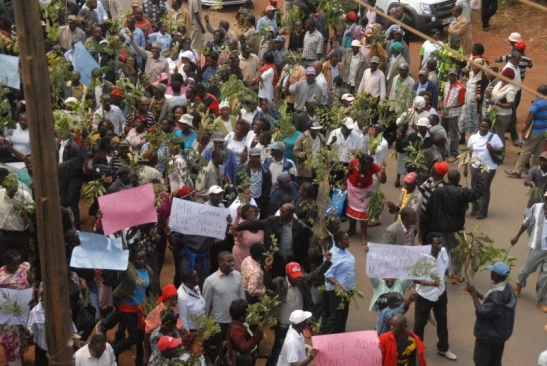30 COUNTIES have been flagged for failing to fulfill ethnic equality in hiring their employees, according to a new report issued by the Auditor General of Government Accounts on the 2022/2023 budget.
The report reveals that these counties have not complied with the constitutional standards of having 30 percent of their employees from other ethnic groups besides the natives. 10 counties have been identified where 90 percent of its employees come from one tribe, leaving only 10 percent to represent other tribes.
The Auditor General of the government Nancy Gathungu revealed that only 17 counties have been able to comply with this requirement by having less than 40 percent of workers from the same tribe.
Despite the law that mandates inclusion in employment, some counties have hired new workers from the local community, thus increasing the existing gap.
“Inquiry of data records on the Payment of Workers (IPPD) for the month of June, 2023, revealed that almost 10 counties had more than 90 percent of workers from the local tribe. This is contrary to Article 7 (2) of the Law on Harmony and National Integration, 2008, which states that no public institution shall have more than one-third of its employees from the same ethnic group,” says the report.
In Bomet County, it was found that among the 3,566 workers, 3467 (97 percent) are from the Kalenjin tribe. 3,571 workers, among 3,738 in Nandi County (96 percent) are Kalenjins. In Nyandarua County, 2,264 workers out of 2,373 (95 percent) are from the local tribe, Agikuyu.
1,474 employees among the total of 1,559 permanent employees of Elgeyo Marakwet are from the Kalenjin tribe (95 percent). In addition, during that year, the county hired 36 new officers all from the local tribe against the law. In Nyamira, 3,734 out of 3,955 workers are from the local tribe, Abagusii.
Nyeri, Murang’a and Kirinyaga each had 92 percent of their workers from the Agikuyu community. In Kakamega county, 6,251 workers out of 6,876 are from the Luhya tribe while 4,205 out of 4,695 workers in Kitui County are Kamba. In Siaya county, among the 1,950 workers, 1,697 are from the local tribe, the Luo.
Among the 6,621 workers in Kiambu County, 5,667 are locals. In Uasin Gishu, 4,030 permanent workers out of 4,707 are Kalenjin. 2,032 of the 2,446 workers are locals from the Maasai tribe in Samburu County. Among Kilifi’s 4,508 employees, 3,564 are locals. 77.7% of Garissa’s workers are from the local tribe.

